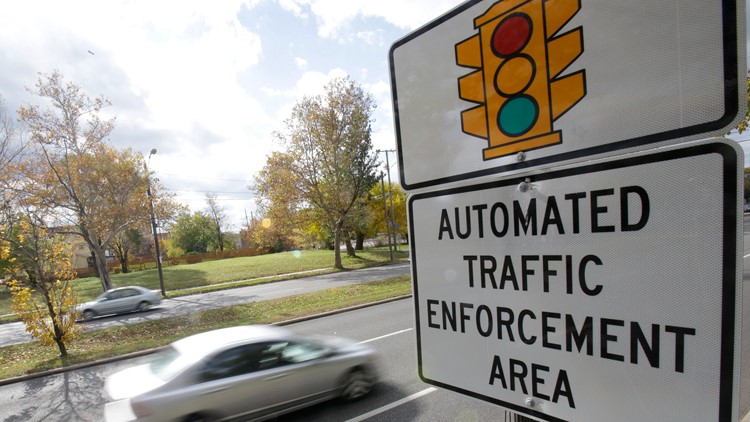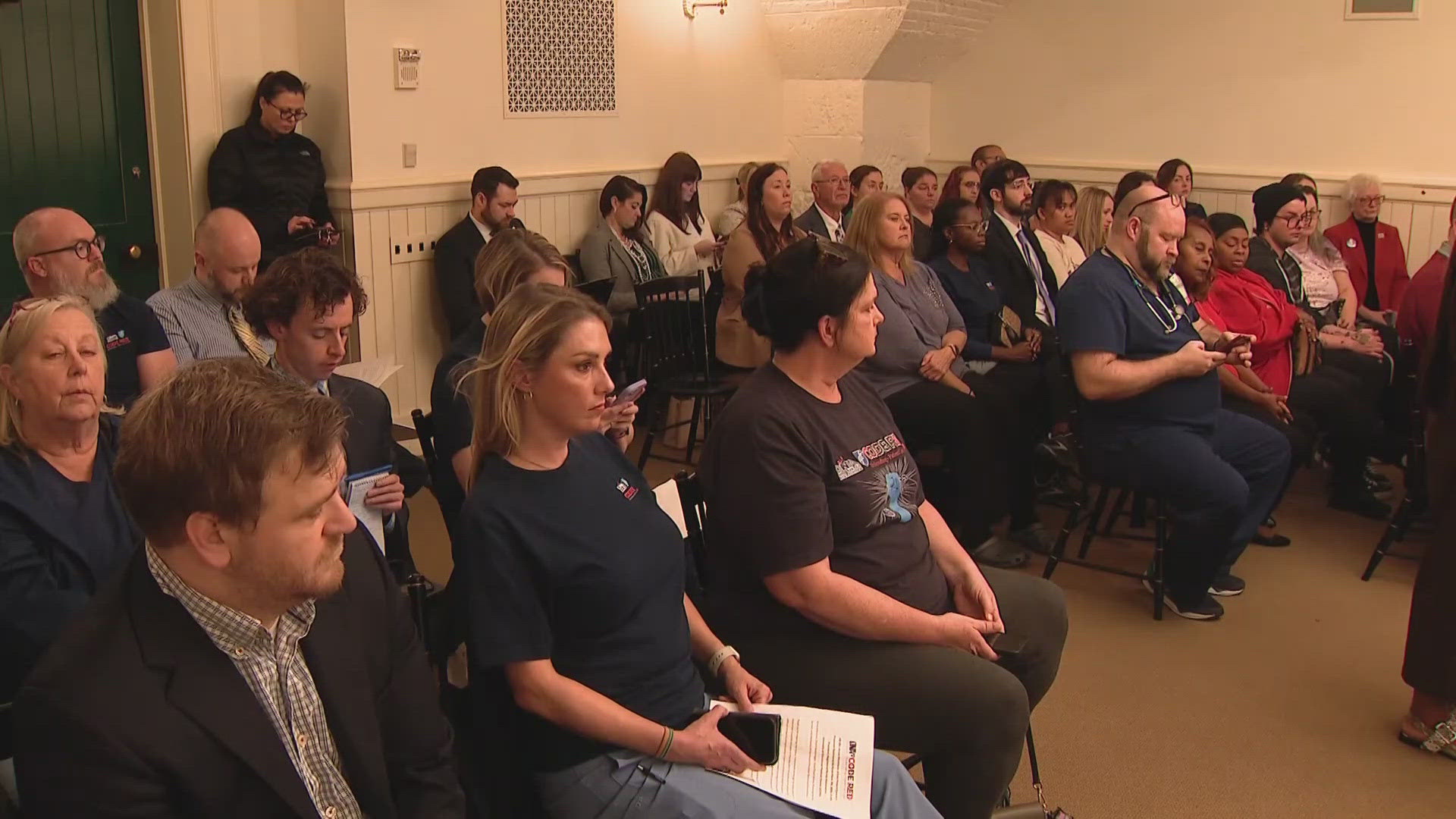COLUMBUS, Ohio — Reducing state funding to local municipalities by the amount those communities collected through the use of traffic cameras doesn't violate the state Constitution, the Ohio Supreme Court ruled Thursday.
The court also upheld the constitutionality of a law requiring that municipalities must pay an advance deposit to cover court costs related to enforcing the ticket program.
The court’s unanimous decision found the 2019 law creating those requirements doesn't conflict with the Ohio Constitution’s provision governing communities’ home rule. The ruling responded to a lawsuit brought by Newburgh Heights and East Cleveland challenging the state requirements.
In arguing that the law was unconstitutional, attorneys for those communities said state lawmakers were trying to “make photo enforcement programs prohibitively expensive and cumbersome to operate.”
In its ruling, the court said that, with limited exceptions, the Ohio Constitution doesn't require lawmakers to appropriate money to municipalities. In addition, the Constitution "does not create a specific right for a municipality to receive local-government funds from the state,” wrote Justice Sharon Kennedy.
In past rulings, the court has upheld the overall right of municipalities to use traffic cameras to catch speeders.
- 100+ people, including children, fall ill after camping event in southern Ohio; norovirus suspected
- Tom Cruise delivers on screening of 'Top Gun: Maverick' for Ohio State University Marching Band
- Columbus leaders allocate more than $16 million for youth education, violence prevention programs
- Columbus Zoo announces sudden passing of Humboldt penguin born in March



